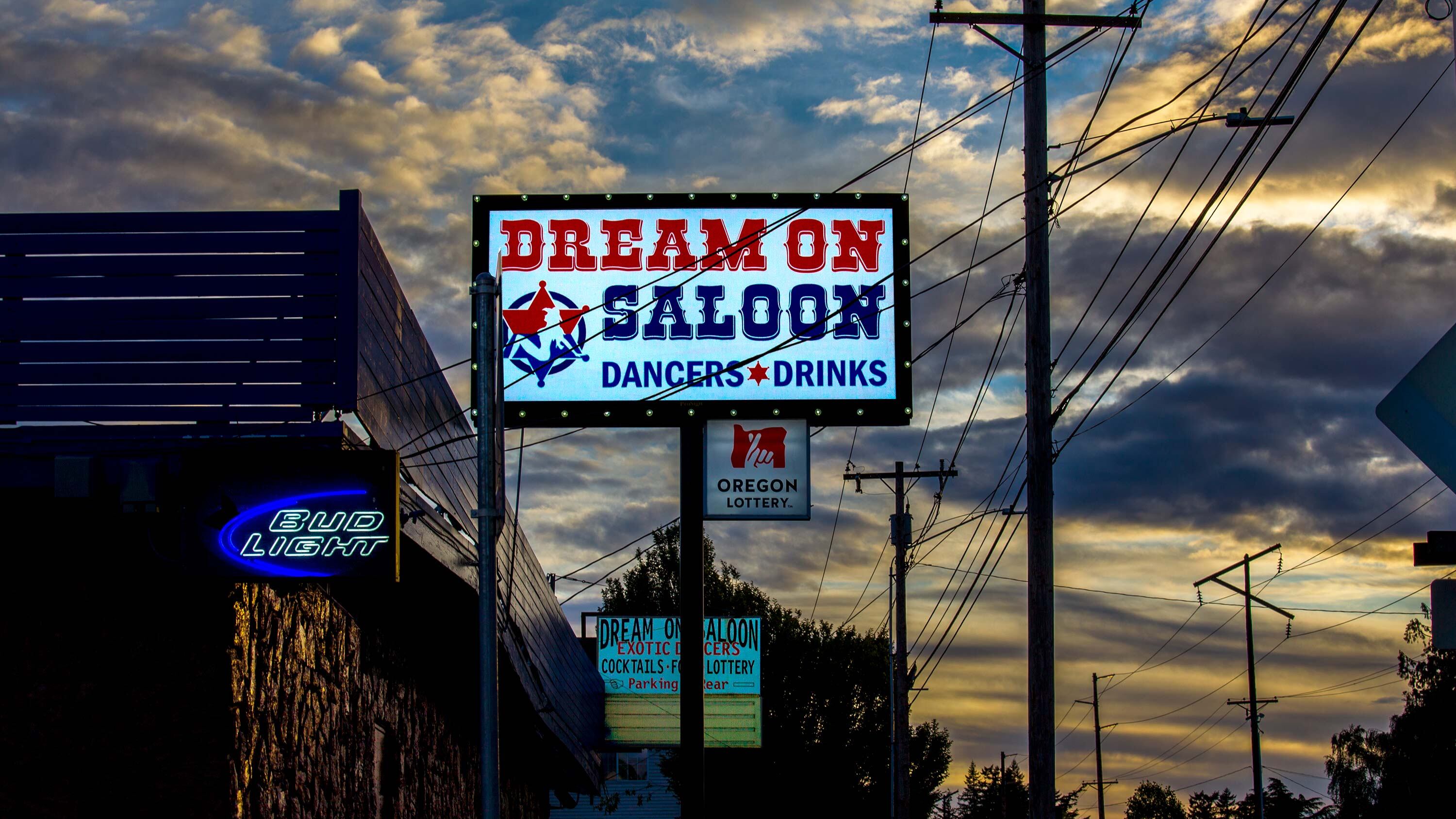At first glance, the killing of Eugene Pharr Jr. outside the Dream On Saloon in January wasn't surprising.
The 42-year-old Pharr was unarmed when he walked up to a security guard sitting in his car outside the East Portland strip club on Jan. 15. But Pharr's companion, Henry McCollum, 49, had a gun, police say.
Francisco Swafford, who is certified by the state to carry a firearm as a private security guard, shot Pharr, who later died at a hospital. Police arrested McCollum, who now faces seven felony charges, for unlawfully using a gun and dealing drugs.
Police say fights often break out near bars and clubs between 2 and 3 am, and sometimes people open fire.
"Typically, by those hours, we'll end up seeing fights break out, and we've had shootings occur, just because everybody is coming out of the bars and everything at the same time," Portland Police Sgt. Gary Britt told a grand jury in October.
Last year, Patrick Kimmons fired a gun at two men before being shot and killed by Portland police outside a bar in downtown Portland, and a bar fight in front of the Cheerful Tortoise led police to shoot and kill a man who had been carrying a gun. This month, a shooting at a warehouse party injured five people.
In May, a grand jury decided Swafford was justified in pulling the trigger. That's also common: Oregon's "stand your ground" law allows private citizens to use lethal force if they fear for their lives.
But now the case has taken an odd turn—Pharr's widow is suing Swafford and the Dream On Saloon, alleging the guard failed to de-escalate the confrontation and acted with deadly force without warning.
Many of the details of the shooting remain confusing, in part because police won't release incident reports until McCollum's criminal case is complete. But the lawsuit poses an intriguing test of whether Oregon's expansive "stand your ground" law can protect a shooter in civil court.
Michael Fuller, the attorney representing Pharr's wife, says he doesn't have to prove Swafford broke any laws to win the civil case.
"[Pharr] was in the wrong place at the wrong time," he says. "It's more likely than not [Swafford] shouldn't have fired his weapon."
The shooting is also a window into the violence that regularly erupts at last call near Portland's nightclubs.

Trouble at the Dream On Saloon is common. Pharr's death was the second fatal shooting in two months at the strip club at the corner of Southeast 160th Avenue and Stark Street—a man was shot and killed by an unknown gunman outside the club in November. The bar was such a magnet for violence that the Oregon Liquor Control Commission ordered the strip club to hire a security guard at all times in February 2018. On the night of the shooting, that guard was Swafford.
On Jan. 15, police say Pharr and McCollum walked up to Swafford as he sat in his car. Prosecutors initially suspected the confrontation was an attempted armed robbery but dropped the charges, saying the state could not prove the case. But prosecutors still suspect the pair had bad intentions that night.
"During the investigation, law enforcement learned that Pharr and…McCollum were longtime associates and that McCollum was a known drug dealer, according to court documents," the Multnomah County District Attorney's Office said in a statement issued after the shooting. Pharr's wife says McCollum is the biological father of her daughters, which is how the two men knew each other.
Elaine Pharr filed a civil suit against the security guard and the club May 28. She says her husband, an Amazon employee with a family, gave McCollum a ride to the Dream On Saloon that night as a favor. Her lawsuit says Swafford should have asked Pharr to leave before shooting.
"Mr. Swafford failed to provide any warning to Mr. Pharr Jr., eliminating any possibility of de-escalating the situation," the lawsuit alleges. "Mr. Swafford could have safely done any number of things that would have not resulted in Mr. Pharr Jr.'s death, including and not limited to calling police for assistance or retreating or using non-lethal force."

The wrongful death suit emphasizes that Pharr was not armed when he was shot.
"My husband didn't deserve to be murdered," Elaine Pharr says. "The man who shot him should have went to jail, but the DA and the city said that he had the right to shoot him. He didn't."
The case also contains a potentially combustible racial element, in a city where the policing of nightlife has led to allegations of racism. Eugene Pharr was black. Swafford is white.
The family's suit is not the first to suggest Swafford sometimes used force without cause.
In March, a woman named Leala Nicholas, who is black, sued Swafford for a previous altercation outside another bar where the security guard worked. She says he shot her with a Taser without reason one night as she was leaving the club. Swafford told The Oregonian Nicholas had been wielding her high heels as weapons in a fight with a group of regulars outside the bar.
Swafford and the Dream On Saloon did not return requests for comment on the lawsuit.
